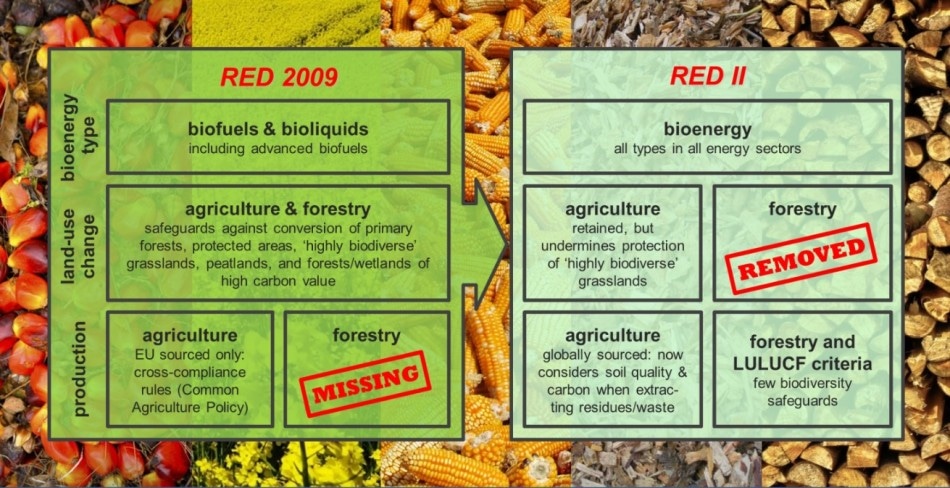Aug 24 2018
Legislative revisions to the European Union’s Renewable Energy Directive (RED) will erode existing safeguards that prevent unsustainable exploitation of forests. The revisions also set incentives that inevitably encourage the burning of unsustainable wood biomass for heating and electricity generation.

In 2009, RED was introduced by the EU parliament to encourage member states to make up at least 20 percent of their energy needs with renewable sources by 2020.
The process included burning wood pellets for fuel as a form of biomass considered to be a carbon-neutral renewable energy source.
The existing laws imposed mandatory safeguards against land-use changes in areas of high biodiversity such as forests and grasslands, with rules that are applicable to all types of biofuel that include renewable-energy obligations.
However, under the proposed revisions published on June 2018 in an agreement named “RED II”, around 75 percent of wood energy being sold in EU would not have to comply with sustainability requirements.
Matthew Flinders Fellow in Global Ecology at Flinders University, Professor Corey Bradshaw, says the revisions include inefficient protection measures against forestry exploitation and lack adequate biodiversity safeguards.
“The revisions outlined in RED II would apply only to areas considered agriculture and no longer encompass forestry. Instead, new management rules that lack adequate safeguards have been added, so biomass harvested in forests could now legally be sold as a “sustainable” product in Europe,”
“Other additions include inefficient measures for biodiversity protections in terms of forestry management The new land-use criteria focusing on carbon safeguards won’t be effective for many reasons.”
Professor Bradshaw says the revisions only address some sustainable forestry requirements and will only apply to installations burning solid biomass above 20 megawatts.
“RED II is an immense step in the wrong direction for biodiversity and we strongly recommend that it be revised immediately.”
“It undermines the already weak sustainability requirements for forestry and opens the door for indirect effects within the EU bioenergy market selling compliant wood to larger plants and non-compliant biomass to smaller plants.”
New criteria outlined in Red II are meant to limit EU member states to importing biomass only from countries that have ratified the Paris Agreement on climate change, and count carbon stock towards their commitment to reduce or limit greenhouse-gas emissions.
Regulations are also meant to protect against the conversion of forests to agricultural land.
But Professor Bradshaw says there is an exemption on importation guidelines and a complete lack of regulation surrounds the process of conversion to agricultural land.
“The requirements are therefore a toothless tiger.”
“We recommend the deletion of thresholds for forest biomass or at least for them to be related to the size of cultivated forest areas, instead of referring to a large plant size of 20 MW.”
Red II also undermines the protection of highly biodiverse grasslands, with only non-natural lands identified by a ‘compotent authority’ protected.
This work has been published in Nature Ecology and Evolution: